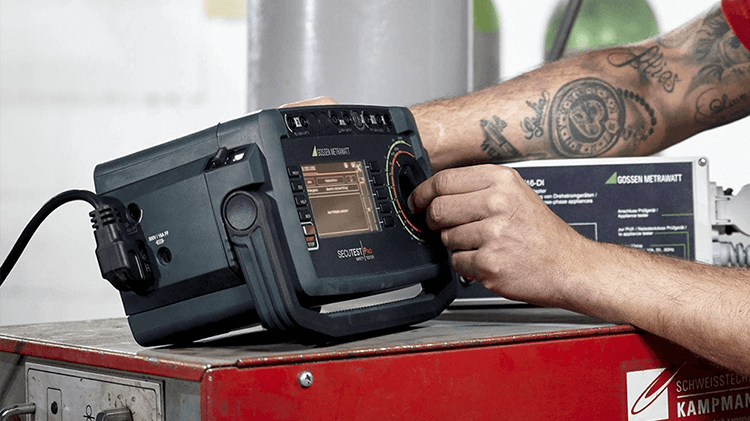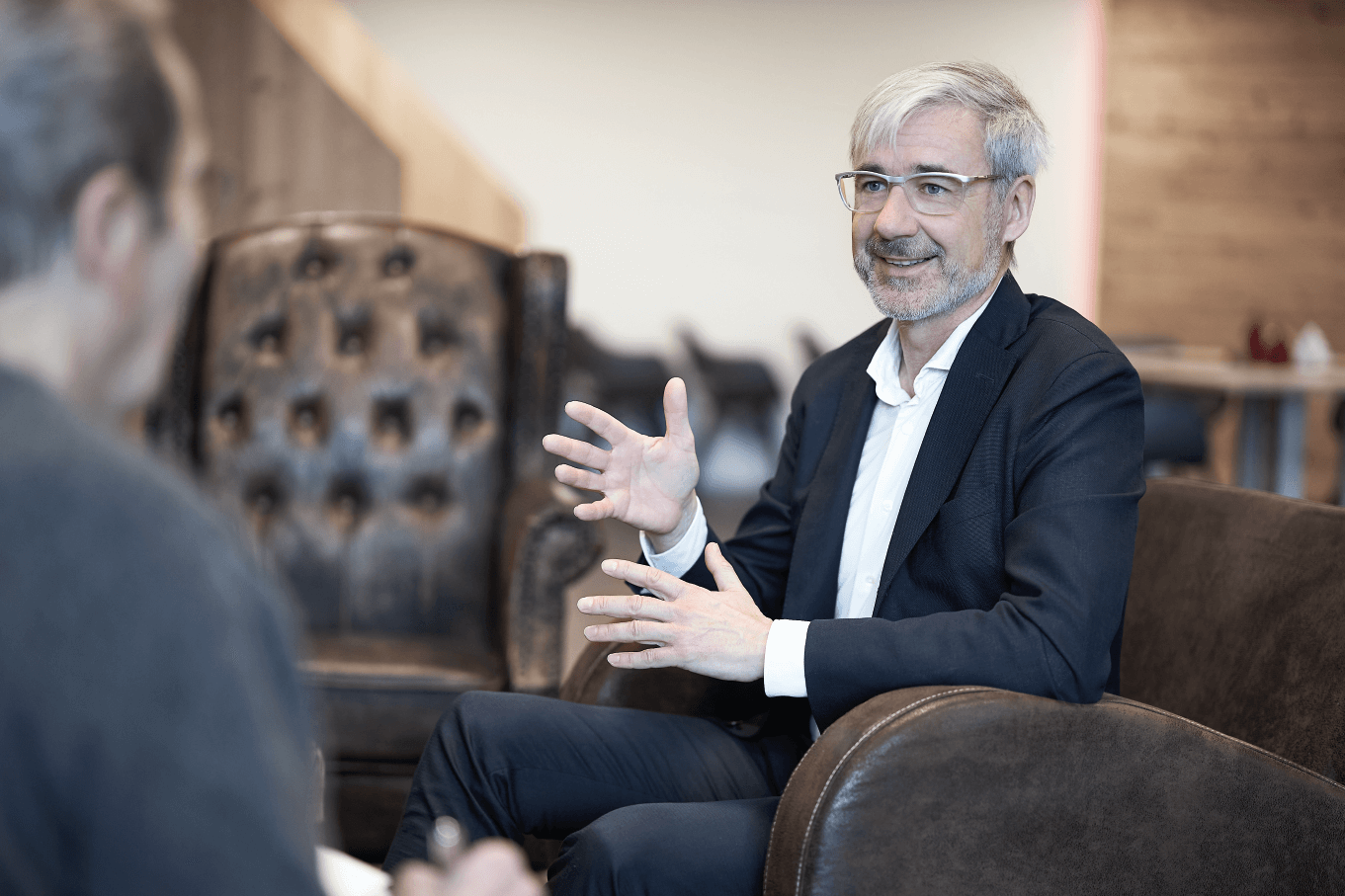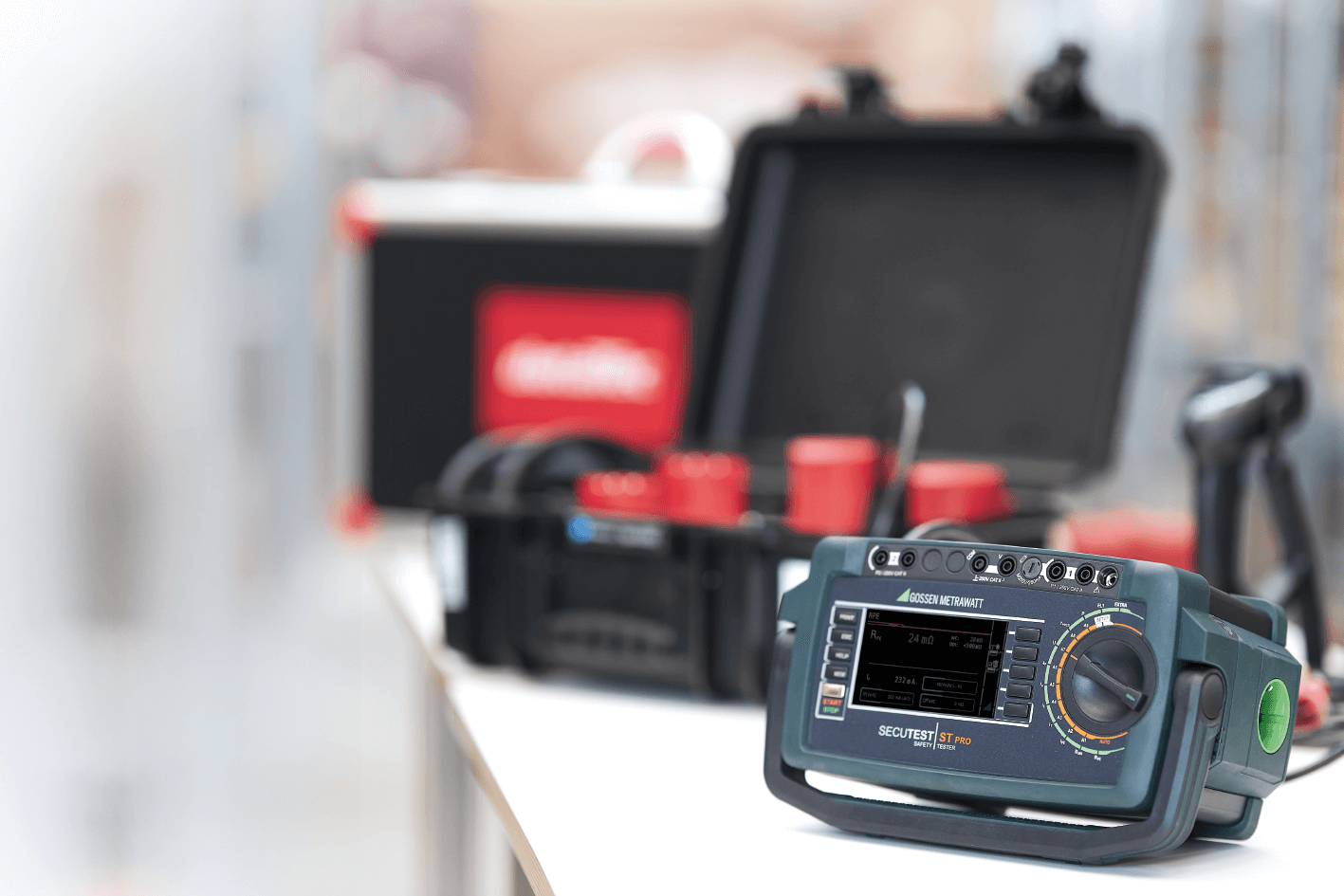#statusMessage#
Do you want to start the compare now?

Thomas Schleich is an engineer, an expounder of ideas, a free spirit – and a first-class speaker at the dataTec Academy.
The man loves contrasts. They seem to inspire him and fuel his flights of thought. Perhaps hardly surprising for the electrical engineer, who knows all about the energy flows – and tension – between poles of an electrical field. And in real life.
We are talking about Thomas Schleich, a speaker at the dataTec Academy, much appreciated by training participants for his competent and entertaining manner.
Because Thomas Schleich is much more than just a purveyor of knowledge, a knowledge broker. The engineer and planner is also – more contrasts here – an "expounder of ideas and structured free spirit". These are certainly the qualities he associates with himself and his team at Schleich Engineering. And let's not forget his proven expertise on numerous VDE standards and their importance to users.

Thomas Schleich
Speaker at the dataTec Akademie
Thomas Schleich is one of the most widely respected experts at the dataTec Academy. In his seminars and workshops on VDE standards, he imparts extensive knowledge to dataTec customers and shows them how to put this knowledge into practice in accordance with standards.
Anyone who wants to repair or test electrical systems independently must first successfully complete such VDE seminars. The dataTec Academy training courses are certified by TÜV Rheinland, an additional testament to their quality.
"We are currently conducting the first two-day practical seminars focusing on the newly regulated VDE 0701-0702 standards," Thomas Schleich tells us. "Nothing too dramatic really, because the content of the standards hasn't changed much. But anyone who repairs and tests electrical appliances needs to know exactly how to go about it, and who is allowed to do what.”
The background to the redesign is the harmonisation of the standards that previously applied at EU level. The separation of the previous standard DIN VDE 0701-0702 into two parts created the new standard DIN EN 50678.
"DIN VDE 0701 applies to the testing of portable equipment after repair. In future, only qualified electricians who have completed their training and received the appropriate training will be entitled to carry this out. The 0702 standard, on the other hand, deals with retesting. People who have received instruction are still allowed to do this – with the appropriate technical equipment and training, of course."
After the two-day seminar with Thomas Schleich at the dataTec Academy, participants are authorised and able to carry out and document the mandatory inspections and the associated assessment independently and in accordance with the regulations. All the test equipment used in these training courses can be found in the dataTec product range. However, those who wish to can also bring their own testing equipment to work with under expert guidance.

The SECUTEST ST PRO is already prepared for the highly topical amendment of DIN VDE 0701 and 0702 (EN 50678 and 50699).
But how, one wonders, does a lively and entertaining "expounder of ideas and free spirit" like Thomas Schleich come to this rather dry subject? A smile plays around the mouth of this native of Germany's Palatinate region as he recalls, "When I was 14 years old, I initially wanted to become a competitive athlete. I raced road bikes at a relatively high level and was a good cross-country skier."
Thomas Schleich remained true to competitive sport until he was 21. But then he decided to learn a "real" profession. An electrical apprenticeship was followed by studies in electrical engineering. "For my degree thesis on programming surge valves, we created artificial lightning in the lab with a voltage of 1.5 million volts. That really fascinated me at the time."
Because finding a job after graduating in the mid-1990s was challenging, Thomas Schleich made a virtue of necessity and toured New Zealand by bike for a few months. Back home, without further ado he founded his own personnel service company – a "one-man show" that placed just one employee, Thomas Schleich. That worked relatively well, as he tells us.
And when he subsequently vied with more than a hundred other applicants for the position of technical advisor at the VDE in Stuttgart, fortune favoured the brave – he got the job. It was at that time that the idea came up of introducing a kind of TÜV safety inspection for home electrics. Thomas Schleich was given the task of developing the necessary test protocols and measurement concepts, and disseminating that knowledge in seminars and training courses. "I travelled the country like an itinerant preacher and trained a few thousand electricians in five years."
In 2003, he finally founded his current company in Reutlingen, continued to give countless practical lectures for the VDE ("I knew all about the things that go wrong out in the field.") and held training courses. Since 2005, these have included dataTec courses. "I follow two precepts here. Firstly: Do it all differently. And secondly: No two technical presentations are the same. There always has to be something new." After all, as his German website points out, "Our real enemy is 'run of the mill'."
With his company Schleich Engineering, Thomas Schleich is driving the development of the digital building world. "In principle, the house of tomorrow is similar to an iPhone: it is not so much the hardware that determines functionality as the software. I am convinced that this is also the future of building technology. We integrate plant technology, building services and media technology in an individual updatable digital system, which relegates the ageing process for properties to the construction side."
Digitalisation is the key to changing the system, he says. "It will help us to stop being so wasteful with our resources and to make our buildings self-sufficient."
Thomas Schleich
You are not quite sure yet or have further questions about the products? Do not hesitate to contact us. Whether directly on the phone or via online demo conveniently in front of your screen - our experts are there for you.